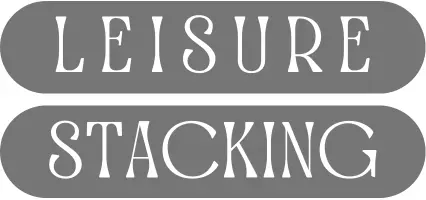Do you make time for leisure planning?
Do you have favorite activities for leisure?
If so, you may be ahead of the curve. Yet, even so, your leisure time can still get better from here.
Most of us spend a significant portion of our leisure time spontaneously, with little planning or reflection, leading to a feeling that these precious moments could have been better utilized.
By adopting a simple, yet effective cycle of Plan – Act – Reflect – Study (PARS), you can continuously improve the amount of satisfaction you get from your leisure time.
This guide will navigate you through each phase of the PARS cycle and provide you with 25 practical leisure planning tips to gradually enrich your free time experiences.
Improve Your Leisure Time with the PARS Cycle

Apply the PARS cycle to everything you currently do in your free time, as well as to all the new activities you’re looking to add to the mix. This leisure planning cycle is straightforward and easy:
- Plan: Decide what you’re doing, who you’re doing it with, and when. It’s your blueprint for enjoyment.
- Act: The main event. Jump in and enjoy your plans. This is what leisure is all about.
- Reflect: Think it over. Was it enjoyable? Right people, right time? Note what could be better.
- Study: Use those reflections to figure out how to level up your next leisure experience. Look into new ideas or tweaks that will make it even better.
Short and sweet, this cycle helps you get the most out of your free time, making each leisure moment better than the last.
Better yet, we’ve released a custom GPT called Leisure Consultant that you can chat with about your leisure pursuits. It will help you reflect, study, and plan your next leisure pursuits. Here’s the interface to Leisure Consultant:
Give it a try and let us know what you think by sending us a message via our Contact page.
25 Leisure Planning Tips for Optimizing Your Leisure Time
You are currently in the “Study” phase of the PARS leisure planning cycle since you’re reading about ways to optimize your leisure time. This is the phase where you gather insights and strategies to enhance how you spend your free moments.
Below, you’ll find a collection of tips and tricks that have helped others make the most of their leisure time. Let’s delve into these ideas and see how they can be applied to your own leisure activities.
- Say No: Learn to say no to commitments that encroach on your leisure time, ensuring you have enough time to relax and enjoy.
- Time Blocking: Dedicate specific blocks of time to leisure activities to ensure you have a balanced and enjoyable schedule.
- Minimum Viable Setting: Strip down your leisure activities to their most fundamental elements that still bring you joy and satisfaction.
- Activity Rotation: Regularly switch between different leisure activities to keep things fresh and engaging.
- Mini Habits: Implement small, manageable leisure habits like drawing for 5 minutes. These mini habits can then grow into more significant and satisfying routines.
- Goal Setting: Set specific, achievable goals for your leisure time to give it purpose and direction.
- Accountability Partner: Pair up with a friend to keep each other motivated and on track with your leisure goals.
- Bucket Lists: Create lists of leisure activities you want to experience, and gradually tick them off as you accomplish them. Create themed lists such as by season, by interest, or by who you will share the activities with.
- Leisure Tracking: Monitor and record your time spent on leisure activities as well as your enjoyment levels for each, enabling you to analyze patterns and optimize your leisure time for maximum satisfaction.
- Semi-Structured Time: Give your free time just a hint of structure by organizing some aspects of it while leaving others to the moment.
- Gamification: Turn your leisure activities into a game with challenges and rewards to make them more fun and engaging.
- Budgeting: Allocate a specific budget for your leisure activities to ensure you can enjoy them without financial stress.
- Creative Challenges: Think up fun and exciting challenges related to your leisure activities to keep yourself motivated and entertained.
- Priority Matrix: Use a priority matrix to categorize leisure activities based on their importance and urgency, helping you focus on what matters most.
- Leisure Themes: Assign themes to different days or weeks, such as “Adventure Week” or “Relaxation Day,” to add variety and excitement to your leisure time.
- Preparation Rituals: Create rituals or routines that help you transition into leisure mode, such as setting up your space or playing specific music.
- Leisure Exchanges: Exchange leisure activity ideas with others to gain inspiration and discover new interests.
- Seasonal Planning: Plan leisure activities that align with the seasons to take advantage of seasonal opportunities and create variety throughout the year.
- Leisure Vision Board: Create a vision board for your leisure goals and dreams to keep you inspired and focused on what you want to achieve.
- Energy Management: Plan leisure activities based on your energy levels, choosing more relaxing activities when you need to recharge and more active ones when you have extra energy.
- Scheduling Apps: Use scheduling apps to organize and remind yourself of your leisure activities, ensuring you make time for them.
- Spontaneity Slots: Allocate slots in your schedule for spontaneous leisure activities, allowing for flexibility and unexpected fun.
- Progress Tracking: Keep track of your progress in leisure activities that involve skill development or personal growth to stay motivated.
- Leisure Rewards: Set up a system where you reward yourself for achieving leisure goals or completing challenging activities.
- Scheduled Optimization Time: Block out regular time slots on your calendar for reflection, study, and planning, ensuring you complete the Plan – Act – Reflect – Study (PARS) cycle and continuously evaluate and improve your leisure activities for maximum enjoyment and fulfillment.
These 25 leisure planning tips should give you some fresh ideas to make your free time more fun and rewarding.
Time to Shine
Now’s your chance to shine by using the PARS cycle and these 25 leisure planning tips. Give them a whirl and then share your leisure planning insights with us on X.
Which planning techniques make your leisure time the most enjoyable? pic.twitter.com/1KWcU3Xu53
— Leisure Editor (@leisureeditor) March 9, 2024
Looking for more ways to brighten up your leisure time? Dive into our guide to hobbies and leisure and explore our collection of energizing activities.


